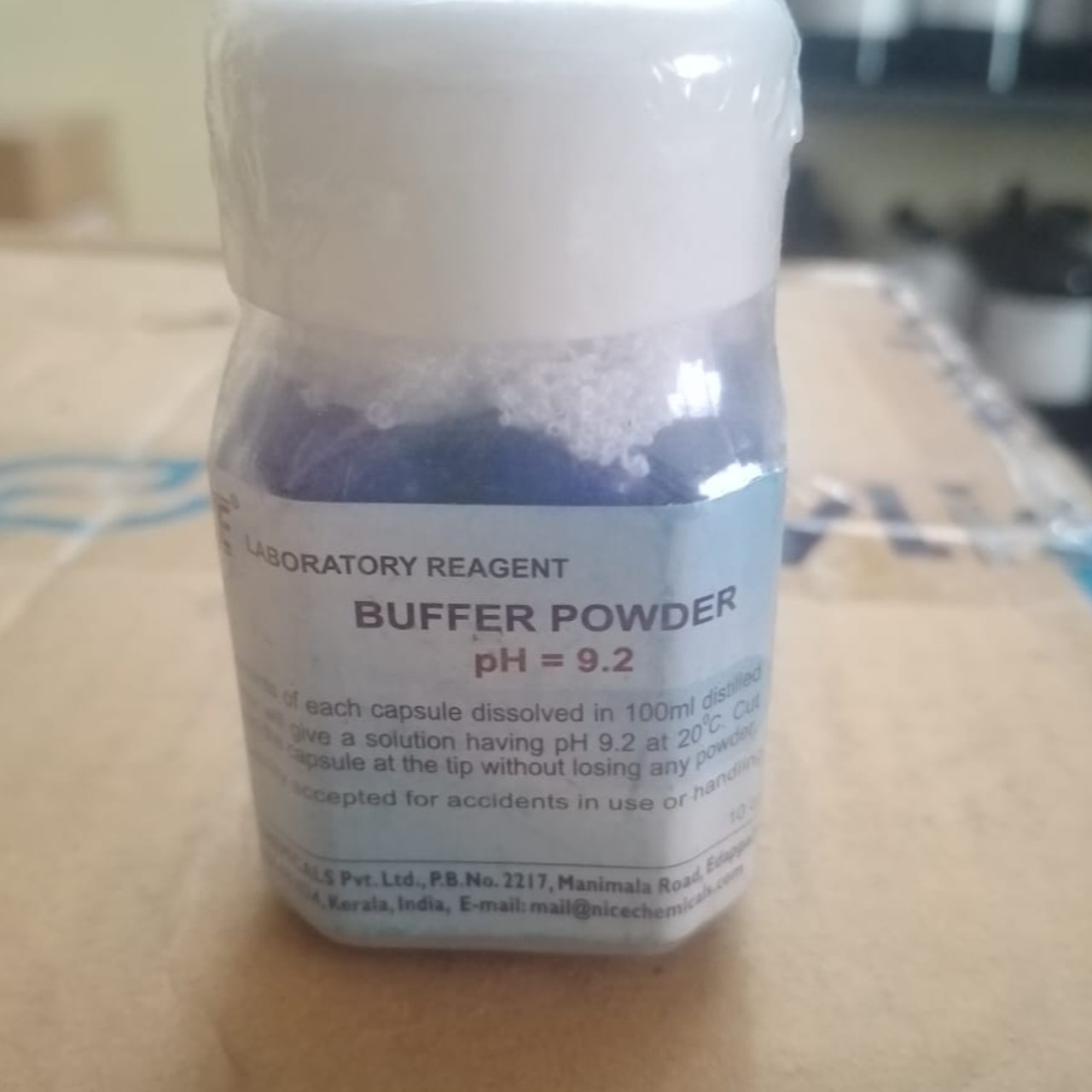
2025-07-18T08:15:48
A pH 9.2 buffer solution is a solution that resists changes in pH when acids or bases are added. It is typically made by combining a weak base and its conjugate acid in solution, and is commonly used to calibrate pH meters and maintain the stability of certain chemical solutions or dosage forms. Key characteristics and uses: Resists pH changes:Buffer solutions maintain a relatively stable pH, even when small amounts of acid or base are added. Calibration standard:pH 9.2 buffers are often used as a standard to calibrate pH meters and electrodes. Stabilization:They can be used to stabilize solutions or dosage forms that are sensitive to pH fluctuations. Composition:pH 9.2 buffers can be made using various weak base/conjugate acid pairs, such as borate buffers, or carbonate/bicarbonate buffers. Example:A common example is the carbonate-bicarbonate buffer, which can be prepared by combining sodium bicarbonate and sodium carbonate.

Have a question? Ask here!
Required fields are marked *